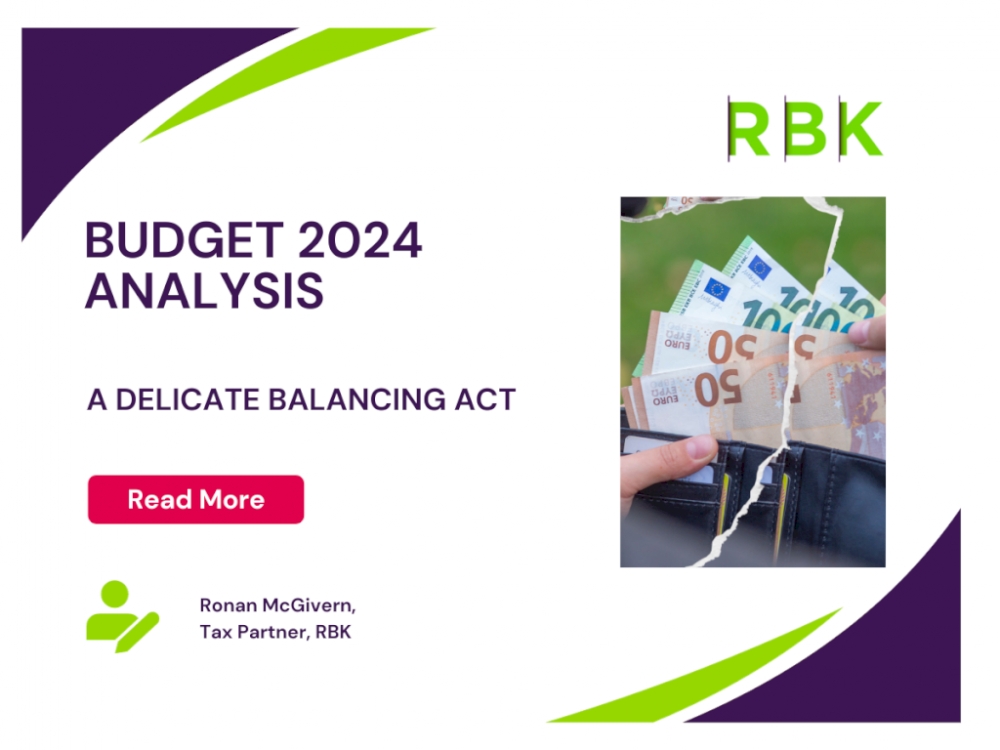This will be Michael McGrath’s first Budget as Minister for Finance. For the Minister, on the surface everything is rosy and he has the hugely enviable position of a country with full employment and a budgetary surplus in the order of €10bn. However, the challenge for the Minister is what to do with that surplus. For many taxpayers, rising interest rates have seriously eroded purchasing power leaving taxpayers squeezed and less well off in real terms. The days of cheap credit are in the past and for mortgage holders or those seeking to get on the property market the price of borrowing is much higher. The most recent interest rate increase by the ECB was the tenth in a row, putting stress on stretched mortgage holders and reducing real income.
Given this, it is likely that the Government will provide some relief for stressed taxpayers with the likelihood of indexing credits and bands. There have been suggestions of further cuts in USC, which would be very much welcomed by taxpayers. Some may remember the introduction of the USC as a “temporary measure” at the beginning of the financial crisis. Thirteen years later, the USC is still with us. A tax from a very different time. The Minister will, however, need to be acutely aware of lessons from the past and difficulties “spending” too much. There were warning signs already requiring caution. In August, it was reported that corporate tax receipts were down €1bn on the same month in the prior year. The Minister will need to carefully monitor this over the months ahead to see if this part of a trend, especially given the Country’s over dependence on a small number of corporate taxpayers.
For many taxpayers, one of key issues will be the housing crisis and what the Minister can deliver in the Budget to help alleviate pressures. The crisis shows no signs of abating. However, the reality is that for many people getting accommodation can be much more difficult that getting employment or even getting a college course. This is a huge concern and will need to be addressed. Whilst the Budget will not have all the answers the Minister can intervene. For example, is it time to eliminate the close company surcharge on residential rental income? Currently the close company surcharge penalises Irish corporate investors in real estate. The surcharge stems from the traditional thinking of “trading good, investment bad”. The reality is that investors are required in the property market and the tax system should not have the effect of penalising a cohort of Irish investors that may have cash to invest. Perhaps it’s time to re-evaluate historic thinking and begin afresh. What is certain is that action is required and I would expect that housing will be a top issue for the politicians on the doorsteps. The supply of housing needs to be significantly increased, and this may require incentives.
With a general election looming on the horizon (to be held by March 2025), the Government parties will be acutely conscious of the message they are sending to the electorate. Pressure may be on to spend and to give back to hard pressed taxpayers. At the same time prudence requires the Minister to keep a keen eye on the future and providing a sufficient buffer to allow the country to withstand potential shocks that may be coming down the tracks. A delicate balancing act indeed for the Minister!
RBK will be holding its annual Breakfast Budget Briefing as a hybrid event in person at the Shamrock Lodge Hotel in Athlone and streaming live online on Wednesday 11th October. Mike Scanlan, Senior Tax Manager, RBK will be analysing the tax measures announced in Budget 2024 and Oliver Mangan, Chief Economist with AIB will look at the economic outlook. In the lead up to the Budget over the next number of weeks, RBK’s Business and Tax advisors will look at potential tax measures that the Government could consider and areas of concerns that are facing our clients.



